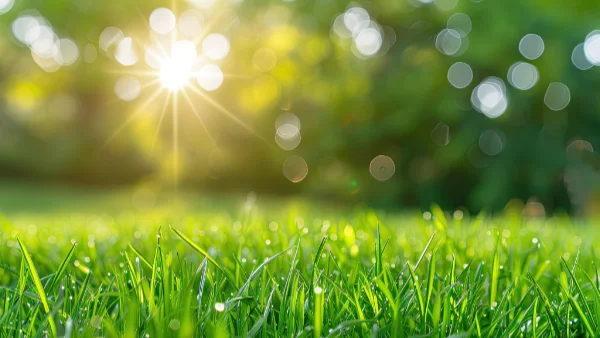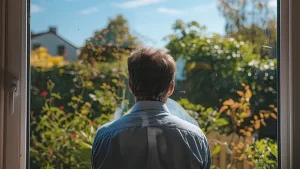
> Feeling burnt out? Subscribe to my Everyday Self-Care Newsletter for self-care tips and doable habits that support your well-being.
We’re all in the habit of using old sayings to mean what we have always believed them to mean, often in simplistic ways that we learned as children. But as anyone who has done any delving into self-awareness knows, there are different levels of knowing, different depths of understanding even the simplest of ideas.
Returning to sayings and everyday expressions can be an interesting form of mindfulness. We can easily just speak and listen without paying any attention to the meaning of our words, simply relying on habit. But we can just as easily take some time to think about what is really meant by those words, where the expressions came from and how we can receive new wisdom.
With this in mind, I’ve recently been considering phrases that we use every day and my mind got to thinking about the simple saying “the grass is always greener on the other side”. It’s an easy phrase to trot out when we feel envy or when we believe that we perceive it in someone else. It can be quite reassuring, reminding us of the human trait of feeling jealous and seeing our own situation as less favourable than others’ without really looking at the facts.
I found out recently that there is actually a thing called ‘grass is greener syndrome’. It’s an inability to feel content with your life and an obsessive desire to continually seek something better. Although it isn’t an actual mental health diagnosis, it can clearly be detrimental to a person’s happiness and cause all sorts of problems with commitment to relationships, education and careers or jobs. It can lead to self-sabotage, impulsive and badly thought-out decisions and often comes from low self-worth.
‘The grass is always greener on the other side’ is, of course, not meant to be taken literally. But I couldn’t help but consider it in this way recently because of the situation locally. This summer we have, like many others around the world, experienced quite an extreme drought. Among the many effects of this is that the grass in gardens and parks has died back to an extraordinary degree, forming big blankets of brown dust that have taken the place of the usual lush green lawns. It has been bad everywhere, everyone’s garden like a desert (and it would be suspicious if it wasn’t, as there was a ban on watering for quite some time).
But I did find something quite amazing in my own garden. I found that if I searched very carefully and looked more closely, here and there I could see tiny green blades of grass and little seedlings growing valiantly in the dusty earth. If I looked further afield, over to my neighbours’ gardens for instance, these leaves and tiny sprigs were not at all visible. I could only see them close by, only if I looked really closely at the ground around me.
If we think of the blades of green grass as a symbol of abundance, happiness or pleasure, or even the potential for these things in the future, and if we look very carefully, turning our perception simply to our own surroundings and situation, then we are more likely to see these little green sprigs sprouting out in even the darkest corners of our lives, sprouting up even through cracks in the concrete. These sprigs and leaves are the very beginning of a whole swathe of grass as they have the potential to grow and spread and add lushness to a huge area over a fairly short space of time.
Considered from a purely symbolic point of view, all we need to do is notice them and nurture them. For instance, if we feel the world is a difficult and ugly place sometimes, we should stop reading the news. We can try looking at the sky instead; seeing the clouds and birds, or perhaps the stars and moon at night. If we feel we have no friends, then we shouldn’t look at social media, the instigator of so much envy of other people’s supposed ‘perfect lives’. We can try instead to notice a friendly smile at the supermarket or a kind word from a co-worker. These could be little ‘sprigs’ that show us that we are actually surrounded by potential friends – we just haven’t found them yet.
It takes continued effort to stop comparing our lives to others, but it can be done. The attitude of gratitude can truly guide us if we just look in the right places and bring our mental microscope down on the right objects. So “the grass is always greener on the other side” is a useful and succinct saying, but we could also say “look for a sprig of grass in your own backyard”. Maybe, with a little more awareness, a little nurture and kindness, we can cultivate the habit of gratitude for what we have and in so doing, our lives and, those of the people around us, can become that little bit brighter.


